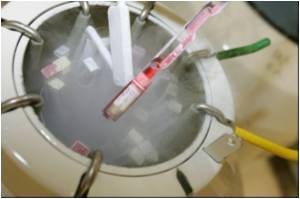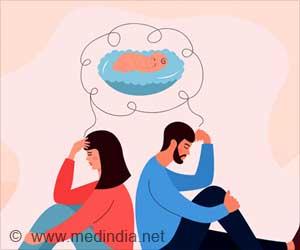A recent study shows that progesterone, a hormone, can help couples with unexplained infertility with conception.
- Infertility is a male or female reproductive system condition characterized by the inability to conceive after 12 months or more of regular unprotected sex
- A recent study discovered that progesterone can help improve the chances by more than double compared to couples who conceived naturally
- Progesterone is much more affordable and accessible compared to IVP, however, further research is required
1 in 6 people globally affected by infertility: WHO
Go to source). While treatments like In vitro fertilization (IVF) can be helpful, oftentimes they are very expensive. Recent research suggests that hormone treatment can increase the chances of having a baby in couples with unexplained infertility (2✔ ✔Trusted Source
Endogenous progesterone in unexplained infertility: a systematic review and meta-analysis
Go to source).
Women with Progesterone Therapy were Twice as Likely to Have Babies
The study compared couples trying to conceive naturally with couples where the woman used vaginal progesterone treatment during the second half of her menstrual cycle.Five out of 71 (7.0%) went on to have children among those who were not treated.
Researchers claim that even though the birth rate more than doubled after therapy, the limited numbers suggest that this could have happened by accident.
The experts believe that if a larger experiment yields similar results, the medication could eventually aid many people suffering from infertility all over the world.
Dr. Claudia Raperport, a researcher at the Queen Mary University of London, presented the findings at the annual meeting of the European Society of Human Reproduction and Embryology (ESHRE).
Progesterone: An Affordable and Safe Way to Fight Unexplained Infertility
Dr. Raperport said: “The cost of progesterone is minimal compared to the cost of IVF and other fertility treatments.”“It also carries far less clinical risk and physical and emotional burden for the couples involved.”
“Given its safety and low price, there is no harm in offering this treatment in the meantime.”
All of the study participants utilized ovulation test kits to schedule sexual activity over the course of three menstrual cycles.
400 milligrams of progesterone were administered twice daily as a vaginal suppository for 14 days to the other half of the group.
According to experts, vaginal progesterone has been used alongside other reproductive therapies like IVF for more than 30 years with no risk of side effects.
The chair of ESHRE, Professor Carlos Calhaz-Jorge from the Northern Lisbon Hospital Centre and the Hospital de Santa Maria in Lisbon (Portugal) said: “This study indicates that progesterone could also be used from the time a woman ovulates to help a fertilized egg implant in the womb in cases of unexplained infertility.”
“If it is proven in a larger study, this treatment could reduce miscarriage and increase the chances of having a baby for those couples with unexplained infertility.”
Reference:
- 1 in 6 people globally affected by infertility: WHO - (https://www.who.int/news/item/04-04-2023-1-in-6-people-globally-affected-by-infertility)
- Endogenous progesterone in unexplained infertility: a systematic review and meta-analysis - (https://pubmed.ncbi.nlm.nih.gov/36572790/)
Source-Medindia












